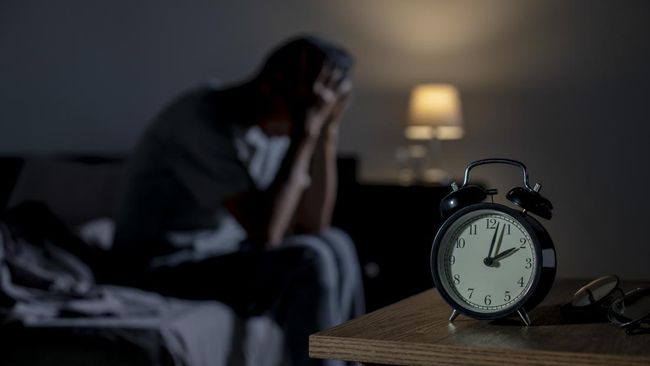Learnmistake – Have you ever found yourself lying awake at night, overwhelmed by anxious thoughts? You’re not alone. Many people report experiencing heightened feelings of anxiety during nighttime, even if they felt relatively fine during the day. But why does this happen? Experts point to a combination of biological, psychological, and lifestyle factors that make nighttime a particularly vulnerable time for anxiety.
1. Decreased Distractions
During the day, activities like work, social interactions, and entertainment can keep your mind occupied. These distractions prevent anxious thoughts from taking center stage. However, at night, when everything quiets down and external stimulation fades, your mind has more room to wander — often revisiting worries, regrets, and fears that were suppressed earlier.
2. Changes in Brain Chemistry
Your brain’s chemical balance naturally shifts at night. Melatonin, the hormone that helps regulate sleep, rises, while cortisol, the “stress hormone,” typically falls. However, if your body’s cortisol rhythm is disrupted — which can happen due to chronic stress or irregular sleep patterns — you might experience increased nighttime anxiety instead of the usual calming effects.
Additionally, serotonin, a neurotransmitter that stabilizes mood, also fluctuates at night. Lower serotonin levels can lead to increased feelings of vulnerability, sadness, or fear during the dark hours.
3. Fear of the Unknown
Darkness and nighttime are historically associated with danger and the unknown. From an evolutionary standpoint, humans are naturally more alert and cautious in the dark to protect themselves from threats. This ancient survival instinct can still manifest today as generalized anxiety when night falls.
4. Overthinking and Anticipatory Stress
Many people use the quiet moments before sleep to review their day or think about the future. While reflection can be positive, it often turns into overthinking — replaying mistakes, worrying about upcoming events, or imagining worst-case scenarios. This “anticipatory stress” primes your body for a fight-or-flight response, making relaxation and sleep difficult.
5. Poor Sleep Habits and Sleep Disorders
Poor sleep hygiene, such as excessive screen time before bed, irregular sleep schedules, or caffeine consumption late in the day, can increase anxiety levels at night. Sleep disorders like insomnia or sleep apnea can also create a vicious cycle where anxiety about not being able to sleep makes the problem worse.
Tips to Manage Nighttime Anxiety
If you often feel anxious at night, there are strategies you can try to ease your mind and improve your sleep:
- Establish a calming bedtime routine: Include relaxing activities like reading, meditation, or gentle stretching.
- Limit screen time before bed: The blue light from phones and laptops can interfere with melatonin production.
- Practice mindfulness: Techniques like deep breathing, progressive muscle relaxation, or guided imagery can help calm racing thoughts.
- Keep a worry journal: Write down your concerns earlier in the day to prevent them from resurfacing at bedtime.
- Seek professional help: If nighttime anxiety severely disrupts your sleep or daily life, consider speaking with a mental health professional.
Conclusion
Feeling anxious at night is a common experience rooted in biology, psychology, and modern lifestyles. Understanding the reasons behind it is the first step toward managing and overcoming it. By adopting healthy sleep habits and mindfulness practices, you can create a nighttime environment that promotes peace instead of worry — and finally get the restful sleep your body and mind deserve.
